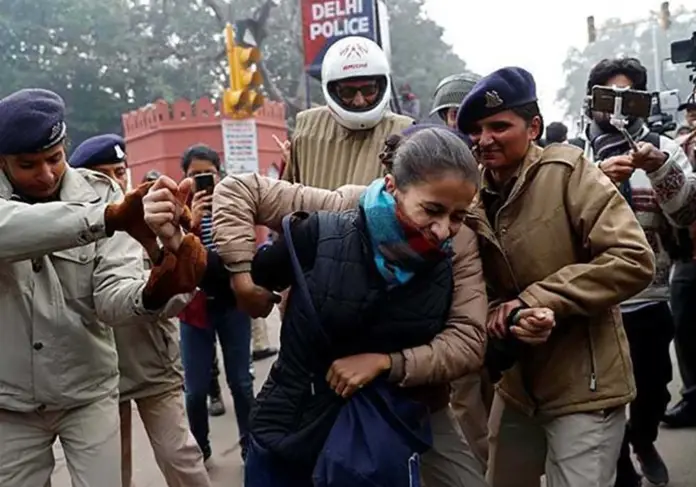A US commission said on Monday that religious freedom has deteriorated “significantly” in India under the Hindu nationalist government as it again recommended targeted sanctions over abuses.
It was the third straight year that the US Commission on International Religious Freedom asked that India be placed on a list of “countries of particular concern” – a recommendation that has angered New Delhi and is virtually certain to be dismissed by the State Department. In an annual report, the panel – which is appointed to offer recommendations but does not set US policy – voiced wide concern about South Asia.
In India, the commission pointed to “numerous” attacks on religious minorities, particularly Muslims and Christians, in 2021 as Prime Minister Narendra Modi’s government promoted “its ideological vision of a Hindu state” through policies hostile to minorities.
“Religious freedom conditions in India significantly worsened,” the report said. It pointed to a “culture of impunity for nationwide campaigns of threats and violence by mobs and vigilante groups” and arrests of journalists and human rights advocates. The Indian government in previous years has angrily rejected the commission’s findings, accusing it of bias.
President Joe Biden, like Donald Trump before him, has sought to increase ties with India, seeing common cause in the face of a rising China. Biden is expected to meet Modi next month in Tokyo as part of a four-way summit of the “Quad” with Japan and Australia. The commission also recommended adding Afghanistan to the blacklist following the triumph of the Taliban and relisting Nigeria, which was removed by the Biden administration.
Separately, Pakistan on Monday deplored a so-called “public notice” issued by India’s higher education bodies urging its students not to pursue education in Pakistan.
The University Grants Commission of India and the All India Council for Technical Education had jointly issued the advisory regarding the non-pursuance of higher education in Pakistan. A Foreign Office statement said Pakistan strongly deplored the so-called public notice, advising students not to seek higher education in Pakistan and warning them of being denied employment in case they choose to do so.
It termed the tone of the public notice not only threatening towards the students but also reeking tyrannical authoritarianism. “It is regrettable that driven by its incurable obsession with Pakistan, the government of India is unabashedly coercing the students in order to deter them from pursuing quality education of their choice,” it said. The FO said the contents of the public notice had further exposed the BJP-RSS combine’s deep-seated ideological animus and chronic hostility towards Pakistan. “It is deplorable that as part of its mission “Hindu Rashtra,” the Indian government has resorted to such moves in order to stoke hyper-nationalism in the country,” it said.
The FO said the government had sought clarification from the Indian government with reference to the said public notice.
“Pakistan reserves the right to take appropriate measures in response to this openly discriminatory and inexplicable action by India,” it said.







